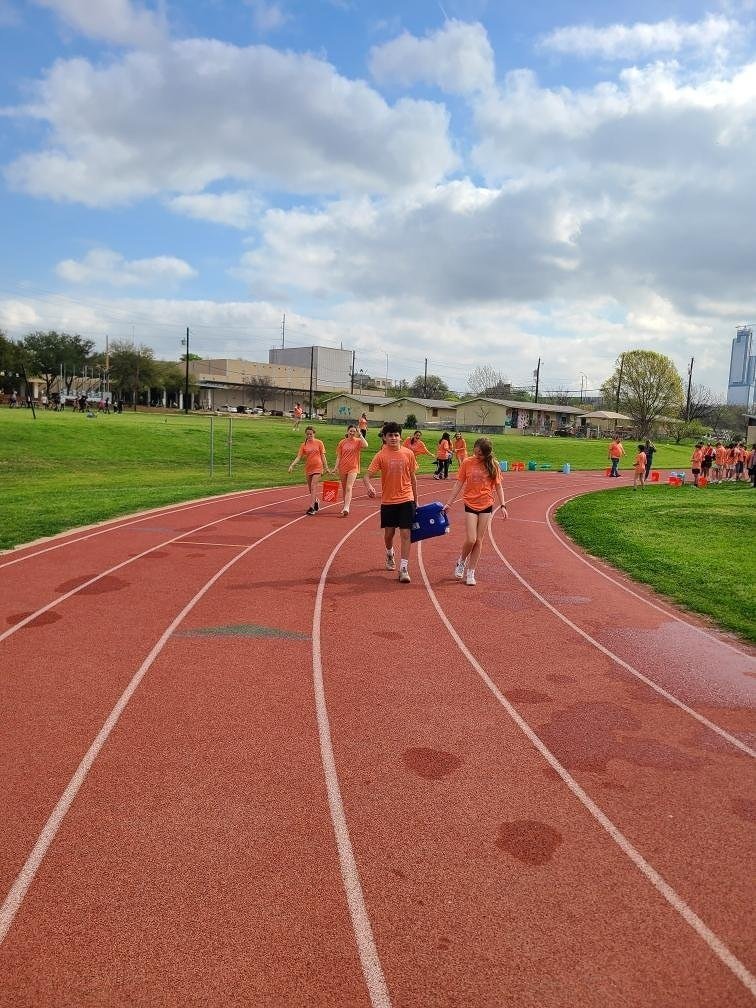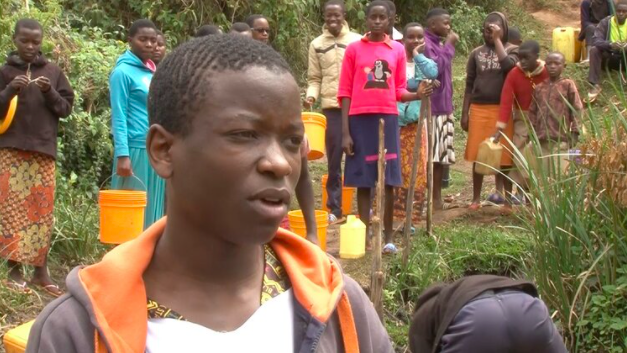Austin High School Academy of Global Studies students have done it again!
For the seventh year in a row AGS Students donated and fundraised, and participated in a walk simulation all of which support our work of providing people in need daily access to clean water. From everyone at the Gazelle Foundation and the many benefactors of clean water - Murakoze Cane! (Thank you very much!)
Academy of Global Studies students with Gilbert Tuhabonye and Danielle Sweeney.
Each spring, freshman students at Austin High School’s Academy of Global Studies participate in the Gazelle Foundation’s Walk For The Water program. These students learn about the global water crisis, water quality issues, and the Gazelle Foundation’s work to bring clean water to those who need it most. As part of the program’s fundraiser, they participate in a simulation to collect and carry water a distance comparable to someone who lives in rural Burundi.
New this year, the students heard from Danielle Sweeney a physician with extensive global health experience, currently serving as Executive Director of IVU (International Volunteers in Urology) and member of Gazelle Foundation Board of Directors.
“Both IVU and the Gazelle Foundation concentrate their work in low resource areas around the world to help address some of the major causes of poverty - lack of clean water and lack of access to quality healthcare.” — Danielle Sweeney
They also heard a first-hand account of what daily life is like without adequate infrastructure and safe running water from Gazelle Foundation co-founder Gilbert Tuhabonye. Gilbert was born in Burundi and is now an Austin resident, philanthropist, running coach, and genocide survivor. He describes his own experiences growing up without access to water, and how he didn’t have a sip of clean water until he went to school in the first grade. He explains the physical challenges of carrying water, which the students get to experience for themselves with the simulation.
AGS students walk from their Austin High School campus to adjacent Lady Bird Lake to collect water as part of the simulation. The lake located in the heart of Austin is partially fed by creeks that wind through urban landscapes, picking up debris. It is considered safe for recreation purposes, but it is not safe to drink.
The Walk Simulation
The Walk For The Water simulation begins with teams of students carrying empty 5-gallon water jugs from their campus to the trail at Lady Bird Lake. The lake located in the heart of Austin is partially fed by creeks that wind through urban landscapes, picking up debris. It is considered safe for recreation purposes, but it is not safe to drink.
Students struggle to keep their feet and clothes dry as they navigate on the slippery culvert to fill their jugs. Some crouch on the concrete pushing their jugs down, so they fills more quickly, while others comment on the quality of the water, back breaking work, or ducks swimming by.
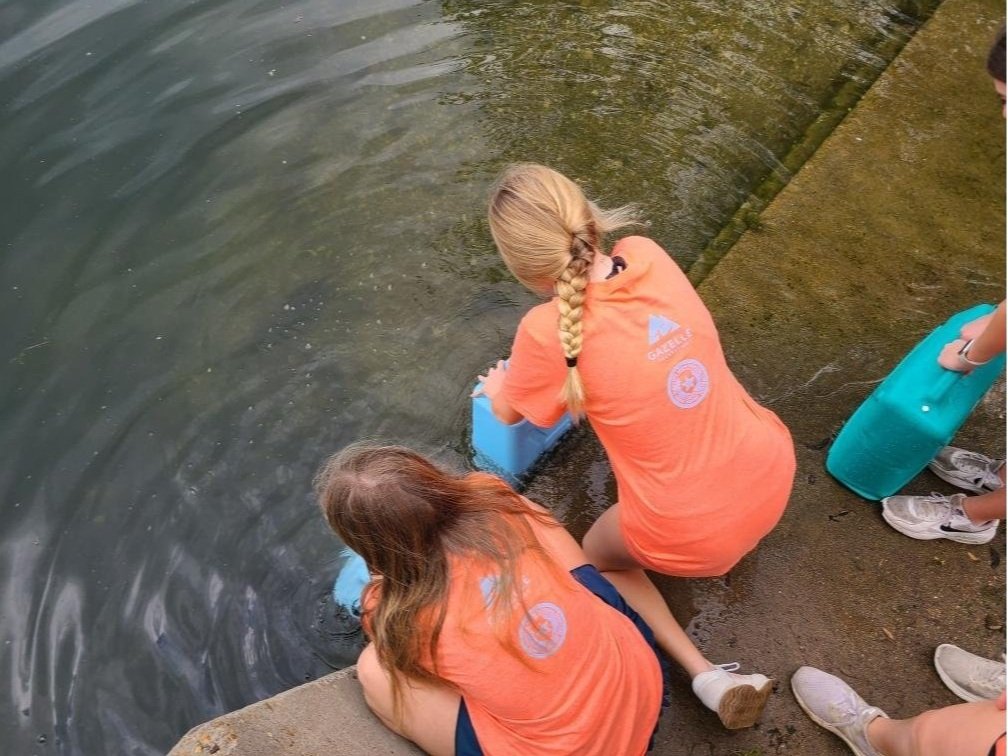
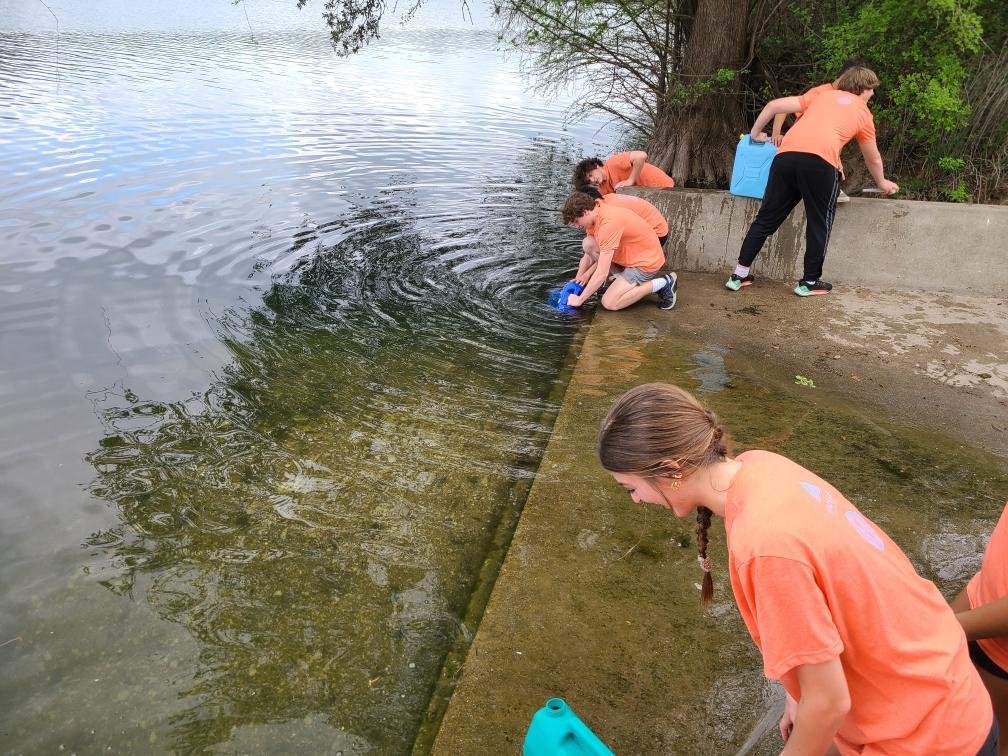
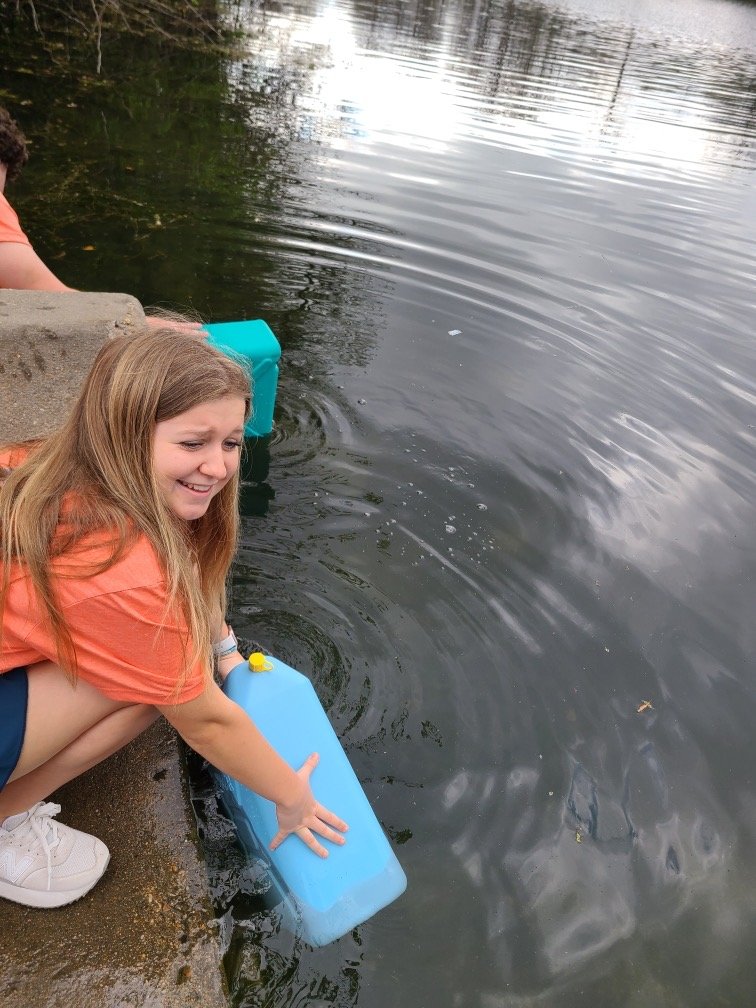
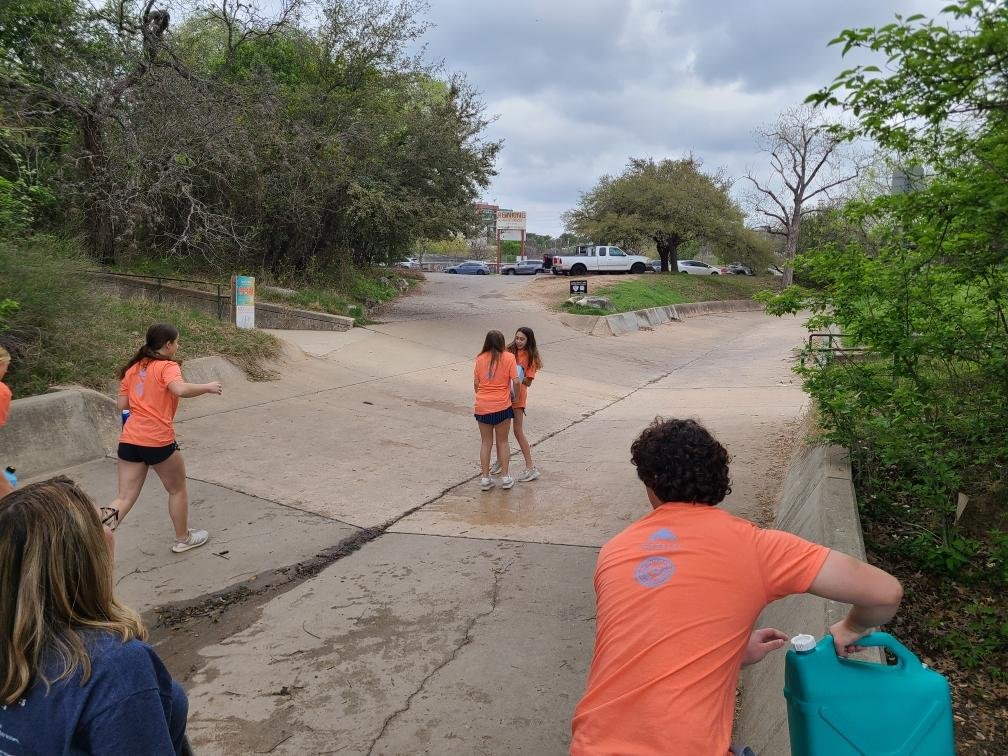
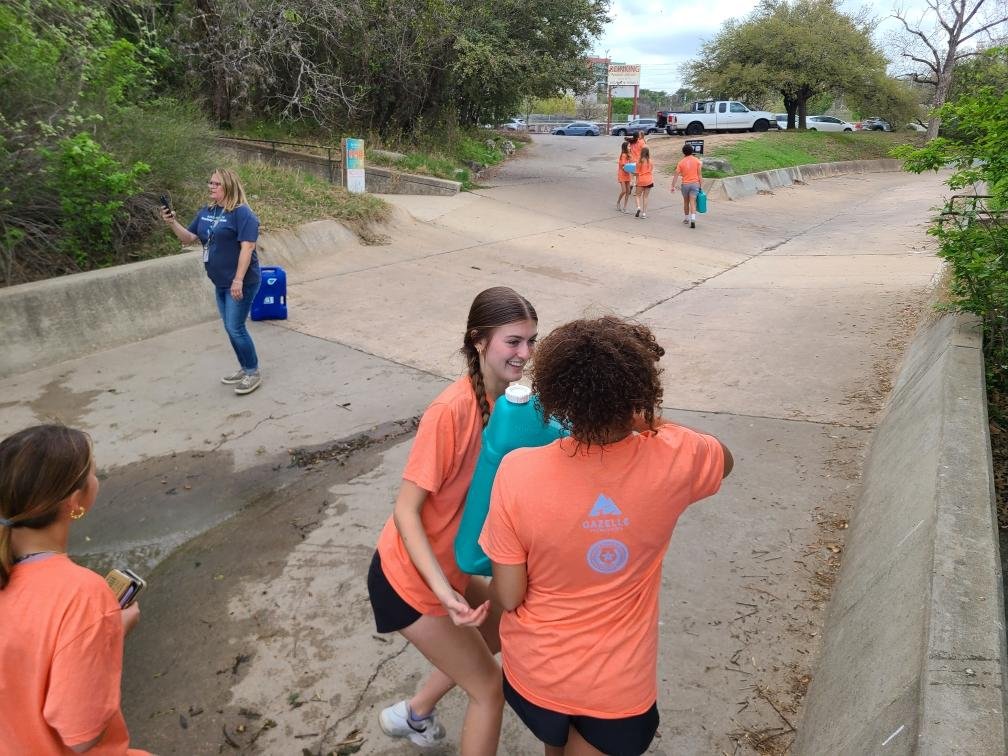
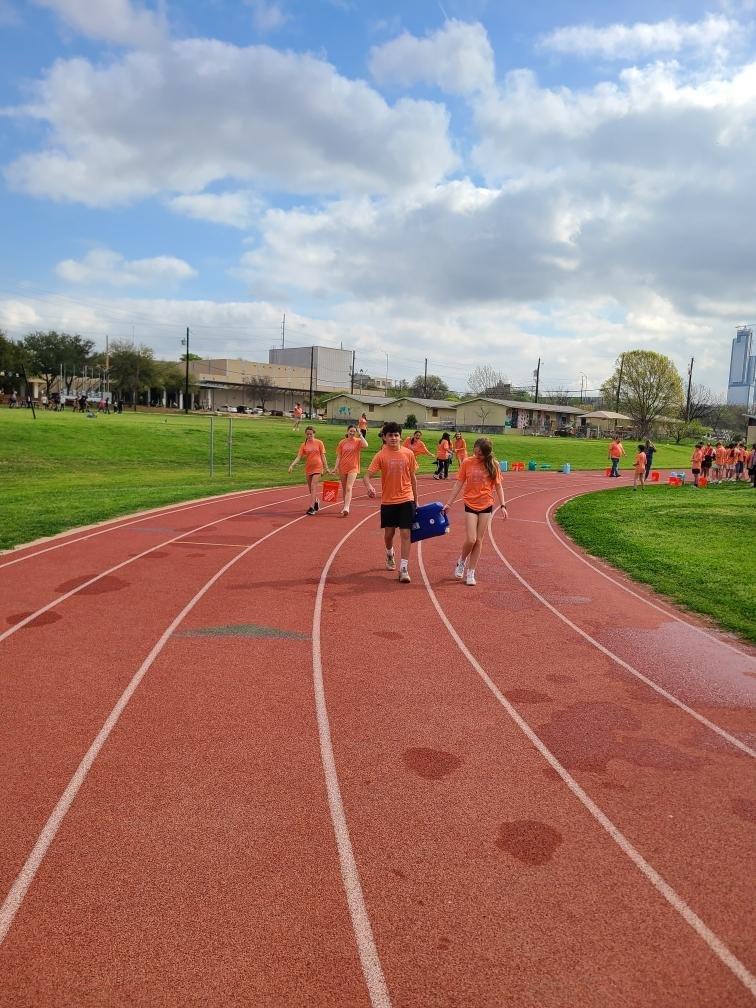
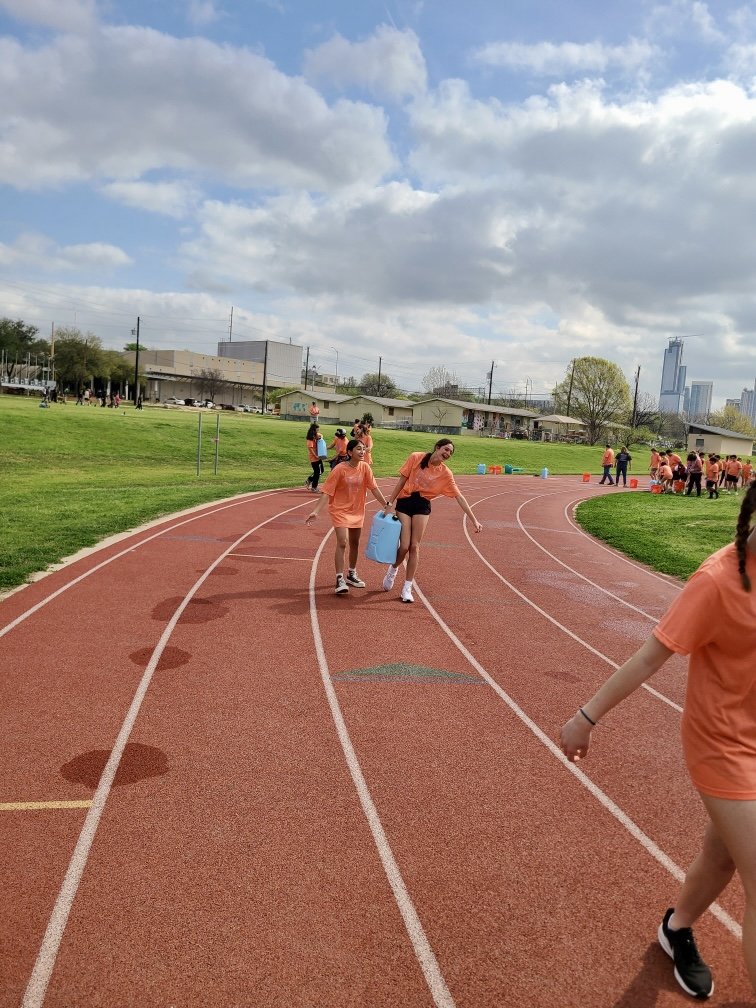
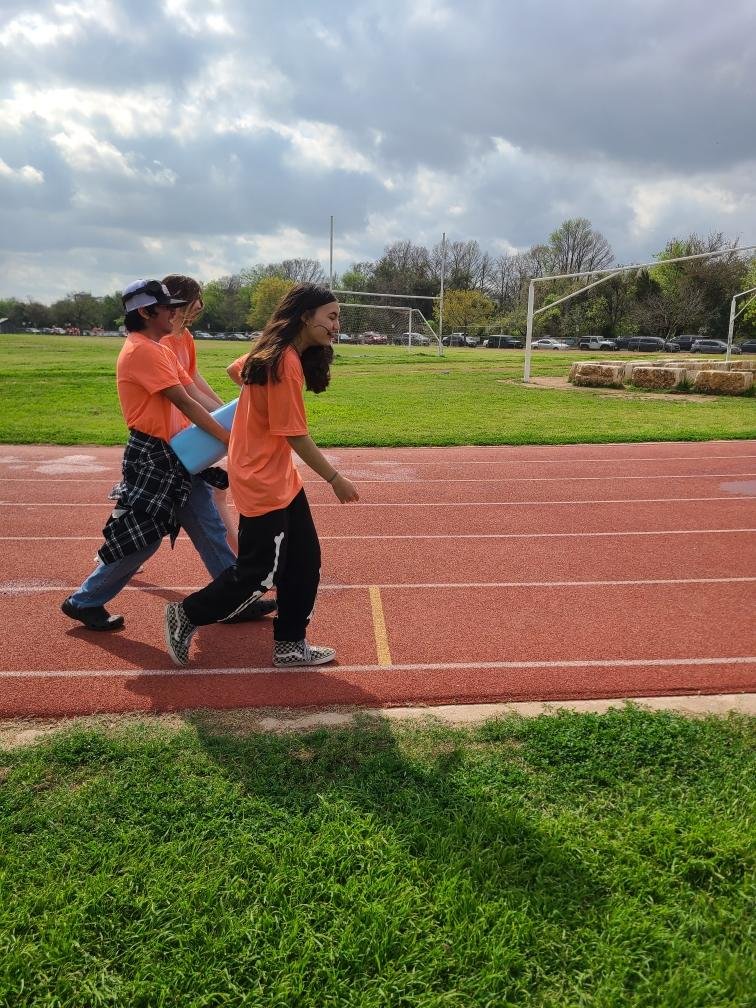
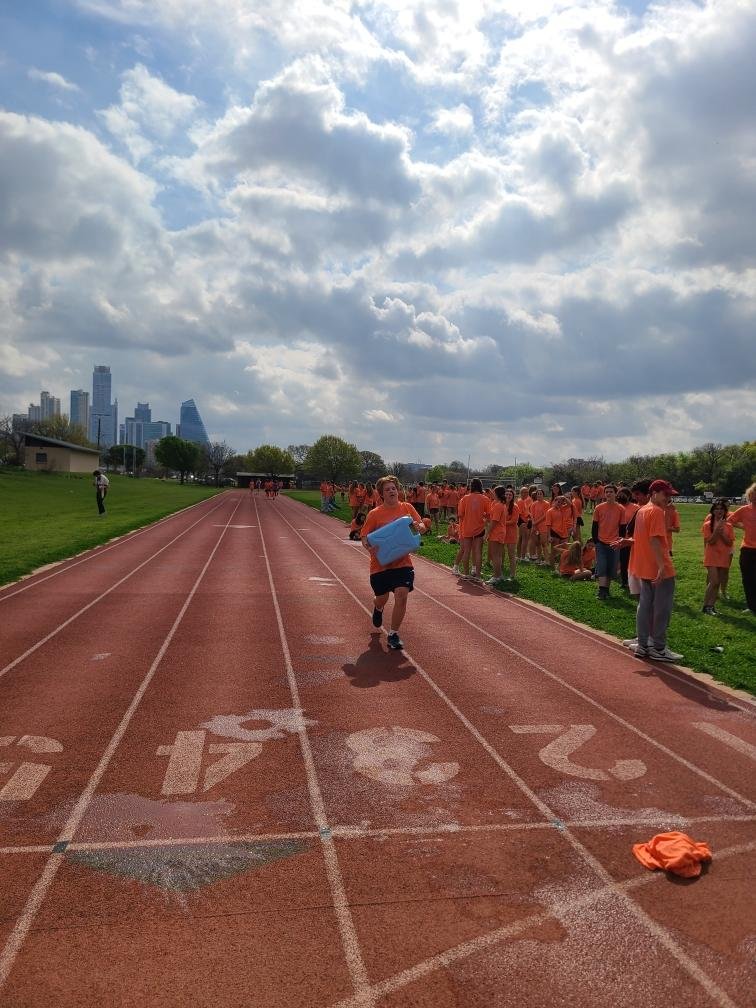
With full jugs, the students trade off carrying duties, some foist the jug onto their heads. They all struggle with the large, awkward containers that are now dripping wet and weigh 40 pounds.
Back on campus they work in teams to carry the jugs around the track. Thirsty and exhausted none of them are tempted to drink it, they know it could make them ill.
Since its inception, the Academy of Global Studies Walk For The Water program has been shepherded by Devon Steiner, freshman biology teacher, who has been to Africa and knows first-hand the challenges of water scarcity. She also knows the power the simulation has on her students, and these lessons empower the students to become socially responsible global citizens.
Students at Austin High School Academy of Global Studies participate in Walk For The Water, March 2023. Austin High School serves 2,349 students in grades 9-12. Gazelle Foundation designs and builds clean water infrastructure in Burundi, Africa. Water is captured from a hilltop spring source before it can become contaminated. It is filtered in the collection chamber and uses gravity to flow onward. Entrenched PVC pipe carries water to tanks, and to multiple tap stands. Tap stands are strategically positioned within easy walking distance to schools, churches, community centers, and other central locations to maximize access points for residents. Water is available for free to all people regardless of the person’s tribe or religion.
Outcomes
Walk For The Water has achieved remarkable tangible results and continues to gain momentum. All of the money raised for the Gazelle Foundation through the program provides Burundians access to clean drinking water. Austin High School is part of the transformative effort to build clean water systems in one of the world’s poorest countries, bringing clean water to the people who need it most.
Since the partnership began in 2017, approximately 1,200 freshmen have participated, raising $43,400, which equates to 1,446 people in Burundi who now have daily access to clean water.
How Gazelle Foundation water systems work:
Learn more about Burundi and the Gazelle Foundation’s work.
“This is impacting a small village in Burundi. Imagine what you and your network can do for the people on the ground in Burundi. ”
Former Austin High School student Daniel McCutcheon, who helped start the Walk For The Water program, shares his vision and motivation.
CLEAN WATER MEANS EDUCATION IN BURUNDI
It is hard enough to be a student, but it’s infinitely harder without clean water.
Without access to clean water, people must spend valuable time collecting water for daily use, and they are sick more often, due to preventable water-borne diseases. Both of these have a disproportionate impact on children, whose school attendance suffers because they are needed at home or are simply ill. With clean, accessible water, these barriers to education disappear.
The availability of clean water and the resulting improvements in health and education begin to reverse the cycle of poverty. According to the World Bank, returns on education investment are the largest in Africa over any other continent, and each additional year of schooling raises earnings by 11% for boys and 14% for girls. Meet Adronis, a student who now has daily access to clean water. Learn more about the water system built near his school. This system – our 60th in Burundi – serves a total of 1,700 area residents, including nearly 650 students at Rubanga School.
Join Our Mission
We thank these generous teachers, students, and families at Austin High School’s Academy of Global Studies for changing the lives of people in Burundi through access to clean water.
Each of our events is an opportunity to provide clean water to those that need it most. Connect to our community here in order to transform lives in a community in Burundi.





